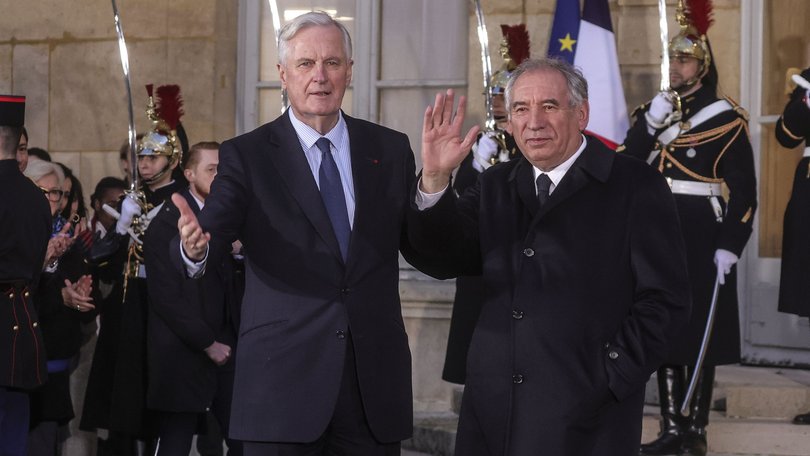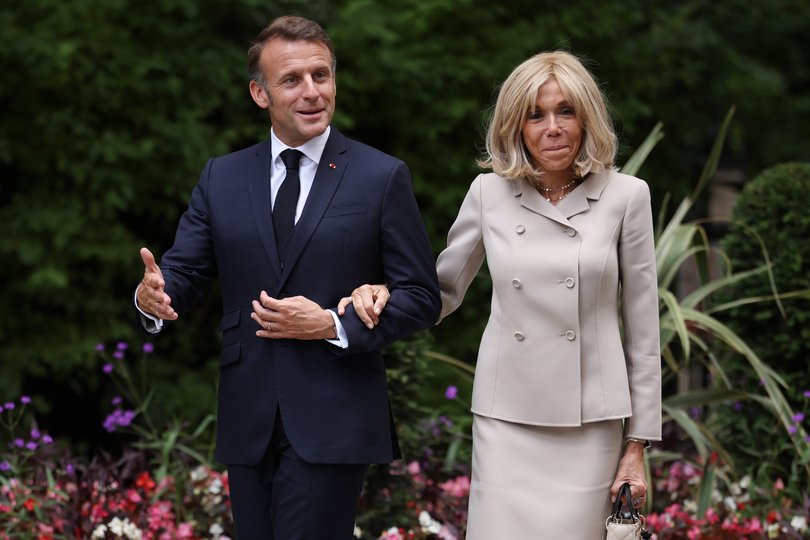Fears of new political crisis grips France
Fears of a new political crisis swept through France on Tuesday as the minority government of Francois Bayrou appeared likely to be ousted in a confidence vote next month.

Fears of a new political crisis swept through France on Tuesday as the minority government of Francois Bayrou appeared likely to be ousted in a confidence vote next month.
France’s embattled prime minister stunned the country on Monday, announcing he had asked President Emmanuel Macron to convene an extraordinary session of parliament on September 8.
Mr Bayrou needs parliamentary backing for his austerity measures to reduce France’s soaring public debt but the main opposition parties - from the far-right to the hard-left - said they would not back the PM’s plan.
Sign up to The Nightly's newsletters.
Get the first look at the digital newspaper, curated daily stories and breaking headlines delivered to your inbox.
By continuing you agree to our Terms and Privacy Policy.The announcement came as calls mounted to stage a nationwide shutdown on September 10 to protest against Mr Bayrou’s proposed budget cuts.
Speaking on Tuesday, local time, Mr Bayrou urged France’s political forces to think twice, noting they had 13 days to “say whether they are on the side of chaos or responsibility.”
“Is there or is there not a national emergency to rebalance the accounts, to escape excessive debt by choosing to reduce our deficits and produce more?” he said.
“That is the central question.”
Far-right leader Marine Le Pen – whose National Rally party has abstained in previous votes of confidence against Mr Bayrou, allowing him to survive – now says she wants parliament dissolved and new parliamentary elections called.
Hard-left firebrand Jean-Luc Melenchon, who has launched previous unsuccessful attempts to bring down Mr Bayrou, suggested that Mr Macron must resign if Bayrou, 74, loses this time.
“Macron is chaos,” the head of the hard-left France Unbowed party said on Tuesday, adding he would propose a motion of no confidence against the president in parliament.
“He must go.”
Political competition is intensifying in France ahead of the presidential election in 2027 when Macron’s second term is set to end.
Macron, 47, has repeatedly faced calls to resign since dissolving parliament last year after far-right gains in European elections, plunging the country into crisis.
But he has insisted that he will stay on until the end of his term and has also said he wants to avoid dissolving parliament and calling snap parliamentary elections again.
Were Bayrou to be rejected by parliament, it would leave Macron seeking his seventh prime minister and cast a heavy shadow over the remaining two years of his presidential mandate.
Mr Bayrou’s predecessor, Michel Barnier, was ousted last December after just three months on the job when National Rally teamed up with a left-wing bloc to topple his government in a similar budget standoff.
After years of overspending, France is on notice to control its public deficit and cut its sprawling debt, as required under EU rules.
Bayrou wants to save about €44 billion euros with measures that include reducing the number of public holidays and placing a freeze on spending increases.

In mid-July, he presented 2026 Budget proposals but the measures have proved deeply unpopular.
On Tuesday, Government ministers called for a last-minute solution.
Economy Minister Eric Lombard vowed to “fight” to ensure the Government wins the vote on September 8.
“Our responsibility is to reach an agreement because the country needs a budget,” he said.
Interior Minister Bruno Retailleau said that bringing the government down would work against France’s interests and warned of the risk of a financial crisis.
“It would be irresponsible to plunge the country into a major financial crisis, the consequences of which would first affect the most vulnerable,” said Retailleau, who is the leader of the conservative Republicans party.
The Paris stock exchange reflected the political malaise, with the CAC 40 index of French blue-chip stocks down around two percent in morning deals on Tuesday, a steeper decline than on other European bourses.
Shares in French banks sank while the yield on the French 10-year sovereign bond rose in a sign of waning investor confidence in France’s debt.
At 114 percent of GDP, France’s debt is a threat to the country’s financial stability, analysts say.
Mujtaba Rahman, Europe director at risk analysis firm Eurasia Group, said the PM would most likely be unseated.
“He sought to shock the French public and political system into facing the gravity of the country’s debt crisis but he may have changed little but the date of his own execution,” he said.
Mathieu Gallard, research director at France’s Ipsos institute, suggested that Bayrou had essentially opted to fall on his own sword by requesting a vote of confidence in a bitterly divided parliament.
“This is like committing harakiri,” he said.
